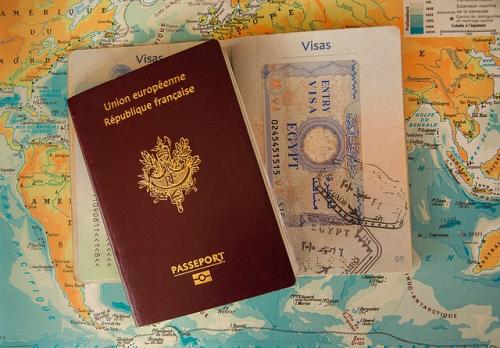What is the difference between visa agent and visa consultant?

Visa Agent vs. Visa Consultant Explained
In the complex landscape of visa applications and immigration processes, the roles of visa agents and visa consultants often emerge as significant points of assistance. These professionals play distinct roles, each offering specific services to individuals seeking guidance in obtaining visas, especially during U.S. visa interview training processes, for various countries. Understanding the differences between a visa agent and a visa consultant is essential to making informed decisions and selecting the right professional assistance tailored to one's specific visa needs.
Visa Agent:
A visa agent, also known as a visa facilitator or intermediary, typically operates as an individual or an entity providing administrative assistance in the visa application process. They assist in preparing and submitting visa applications on behalf of their clients. They offer services centered around facilitating visa application submission and managing document submission's logistical aspects. Visa agents streamline the administrative process by ensuring all necessary documents are correctly filled out and filed with the respective embassies or consulates.
Visa Consultant:
On the other hand, a visa consultant offers a more comprehensive range of services than a visa agent. These professionals provide extensive guidance, expertise, and personalized assistance throughout the visa acquisition. They help navigate the complex visa application process, offering advice on required documentation, eligibility criteria, and procedures for various types of visas for different countries. These consultants often have expertise in visa regulations and assist clients in preparing their applications to increase the chances of approval.
Roles and Responsibilities of a Visa Agent vs. a Visa Consultant:
The roles and responsibilities of a visa agent and a visa consultant often overlap, but they can differ based on the services they provide and their expertise level.
Visa Agent:
Application Assistance: A visa agent primarily assists in the practical aspects of the application process. They help fill out forms, collect required documents, and submit applications.
Liaison with Authorities: Agents often act as intermediaries between applicants and the embassy/consulate, facilitating communication and document submission.
Basic Advice: They might provide basic information about visa requirements and procedures, but they focus more on logistical support.
Visa Consultant:
In-depth Guidance: Consultants offer detailed advice and guidance throughout the visa application process.
Expertise in Various Visas: They possess comprehensive knowledge about different visa types, eligibility criteria, and nuances of specific visa applications for various countries.
Legal Expertise: Some consultants might have legal expertise or connections that allow them to offer more comprehensive support, especially in complex cases.
Tailored Recommendations: Consultants often provide tailored solutions, personalized advice, and strategies to increase the chances of visa approval.
Key Distinctions Between Visa Agent and Visa Consultant:
The key distinctions between a visa agent and a visa consultant lie in their scope of services, expertise level, and depth of assistance provided:
Scope of Services:
Visa Agent: Primarily focuses on practical assistance in the visa application process. They help with form filling, document collection, and application submission.
Visa Consultant: Offers comprehensive guidance beyond just application support. They provide detailed advice, tailored strategies, and in-depth knowledge about various visa types and specific country requirements.
Expertise Level:
Visa Agent: Often possesses basic knowledge about visa processes and requirements, assisting with routine applications.
Visa Consultant: Typically has a higher level of expertise, understanding complex visa scenarios, legal nuances, and strategies to address specific client needs or challenges.
Client Interaction:
Visa Agent: Acts as an intermediary between clients and the embassy/consulate, facilitating the submission of applications.
Visa Consultant: Engages more directly with clients, offering personalized advice, assessing individual circumstances, and providing tailored solutions.
Depth of Assistance:
Visa Agent: Provides transactional assistance, focusing on the logistics of the application process.
Visa Consultant: Offers a more consultative approach, guiding clients through the entire process, providing strategies to improve the chances of visa approval, and addressing complex situations.
In summary, while visa agents and visa consultants assist with visa applications, consultants tend to offer a higher level of expertise, personalized guidance, and comprehensive support compared to agents, who primarily focus on facilitating the application process.
Conclusion:
Visa agents and visa consultants serve different roles in visa acquisition. Understanding their distinct responsibilities and expertise is crucial for individuals seeking assistance navigating visa application complexities. By discerning the differences between these professionals, applicants can make informed decisions and select the appropriate professional assistance aligned with their specific visa requirements and preferences.
Comments